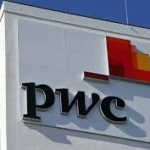
Professional services firm, PwC, has stated that though the Energy Sector Levies is expected to enhance the government’s capacity to stabilise power supply and reduce the power sector debt, it also places added pressure on consumers.
The pressure on the consumers, it said in its commentary on the 2025 Mid-Year Budget Review, will come through higher fuel prices, potentially affecting transport costs and inflation.
The Energy Sector Levies (Amendment) Act, 2025 (Act 11), led to Parliament approving an additional GH¢1 per litre on selected petroleum products.
This adjustment led to a significant jump in the revised ESLA budget—from GH¢6.7 billion to GH¢9.6 billion—with the Energy Sector Shortfall and Debt Repayment Levy (ESSDRL) component rising from GH¢5.7 billion to GH¢8.6 billion.
As of mid-year, provisional collections from the ESSDRL and related levies amounted to approximately GH¢2.9 billion, indicating a strong start toward the revised revenue target, and noting the expected full impact of the newly introduced GHS1 per litre tax for the second half.
To ensure the effectiveness of the ESSDRL while minimising its adverse effects, PwC recommended that the government closely monitors inflationary impacts, particularly on transport and vulnerable households.
Additionally, it said exploring alternative funding mechanisms could reduce over-reliance on petroleum-based levies in the long term.
- President Commissions 36.5 Million Dollars Hospital In The Tain District
- You Will Not Go Free For Killing An Hard Working MP – Akufo-Addo To MP’s Killer
- I Will Lead You To Victory – Ato Forson Assures NDC Supporters
Visit Our Social Media for More




